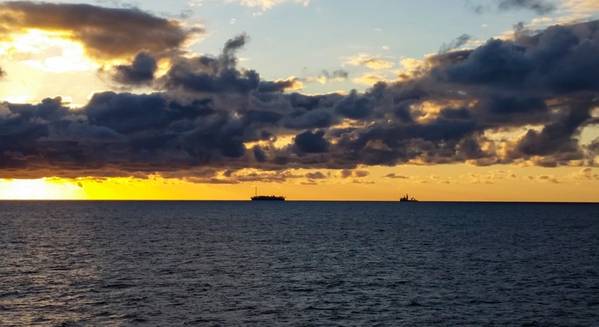
Petrobras will not do all of its shipbuilding work in Brazil, a top executive said, dashing industry hopes the state-controlled oil firm would review its awarding process to spur job creation.
Steel groups, shipping unions and 14 other organizations which backed the election of President Luiz Inacio Lula da Silva are pressing the government for more made-in-Brazil contracts from Petrobras.
The president has said in speeches Petrobras would "reactivate the oil and gas industry", and "resume building ships" in the country. Petrobras will help revitalize Brazil's shipbuilding industry by awarding more contracts locally to dismantle old oil platforms and to build topside modules for new vessels, but not to build hulls or entire platforms, engineering head Carlos Travassos told Reuters.
"No country does the entire FPSO," Travassos said in Houston, using the acronym for the floating platforms able to store and offload oil. Brazil's shipping industry "has a good opportunity" to grow, "but needs to bet on its callings," he said.
Petrobras' shipbuilding strategy puts a test to Lula's ability to use the company to create jobs -- a strategy he used in his first two presidential terms, not without controversy and oil production delays.
The industry groups claim shipbuilding jobs in the country fell by 80% to 15,000 since Lula was in power 15 years ago. In an April 26 letter to the government, they said Petrobras now awards as much as 80% of its offshore contracts to companies in China and Singapore.
They also said most of Petrobras' contracts are awarded to only three Brazilian shipyards: EBR, Keppel Fels and Jurong, with the last two units of Singaporean firms.
And the groups demanded Petrobras raise the made-in-Brazil work for platforms including those for Albacora, SEAP, Sepia, and Atapu fields.
"The local content (requirements) we have today cannot be met by the market. So it does not make sense to raise it," Travassos said. Building modules requires smaller construction sites and can more easily be replicated. Also, the work force expertise is transferable to building refining, biodiesel or hydrogen plants.
"Once Brazil qualifies itself to build modules, it will have a much better opportunity to perpetuate the business instead of learning how to make FPSO hulls and compete with Korea, China," he said.
FPSO hulls are highly customized, and any country would take years of building a few before establishing a steady production line, he said. "We see a very good opportunity for Brazil's (shipping) industry, but it is not in FPSO hulls," Travassos said. (Reporting by Sabrina Valle; additional reporting by Marta Nogueira; Editing by Kim Coghill)